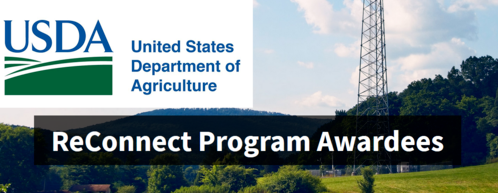USDA ReConnect Amps Up Broadband Funding to Tribal Nations
When a $25 million broadband funding award for the Colorado River Indian Tribe (CRIT) was announced in July 2023, CRIT Chairwoman Amelia Flores celebrated it as a “game changer.”
“Broadband access is essential,” Flores’s statement read, making “remote learning, telecommuting, conducting business, and simplifying staying connected” possible.
Coming amid a rolling series of announcements from the Tribal Broadband Connectivity Program – each lauding millions of dollars in broadband funding for Tribes – it would have been easy to file away CRIT’s award as another from that pathbreaking broadband funding program for Tribes.
But this was not the TBCP. Rather, CRIT was among a handful of Tribes that received substantial funding awards from another federal source that has recently stepped up their grantmaking to Tribes – the U.S. Department of Agriculture’s (USDA) ReConnect Grant Program, administered by the department’s Rural Utilities Service (RUS).

CRIT’s award is a helpful reminder that TBCP is not the be-all-end-all of funding for Tribal broadband. With an award cycle now open, ReConnect offers powerful tools and incentives – including dedicated Tribal funding, 100 percent grants, and consent for any new infrastructure on sovereign lands – for Tribes looking to expand or launch broadband service.
TBCP, ReConnect, and Federal Funding for Tribal Broadband Infrastructure




